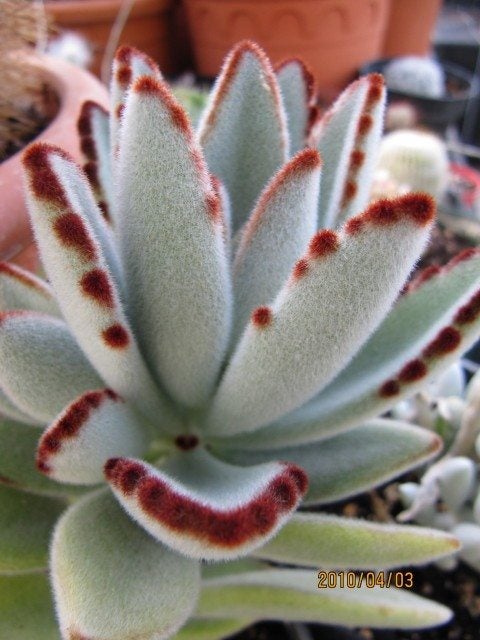Panda Plant Care - How To Grow a Panda Plant Indoors
The indoor panda plant is a hardy succulent that makes an interesting addition indoors. Often a favorite of children, growing Kalanchoe panda plants is easy


The indoor panda plant is a hardy succulent that makes an interesting addition to the houseplants you grow indoors. Often a favorite of children, growing Kalanchoe panda plants are a good specimen to locate in a child's room as part of the décor. Keep reading to answer the question of what is Kalanchoe tormentosa and how to grow a panda plant indoors.
What is a Panda Plant (Kalanchoe Tomentosa)?
More than 100 varieties of Kalanchoe grow in the wilds of Africa and other parts of the Old World. Kalanchoe tomentosa grows wild on the island of Madagascar. In its native environment, growing Kalanchoe panda plants have a woody base and reach several feet (1 m.). As an indoor plant, however, panda plant growth is limited by the size of the container, usually reaching only 1 to 2 feet (31-61 cm.) in height and 2 feet (61 cm.) around.
The velvety appearance of the leaves is created by hairs that spring up in trichomes, deflecting light and limiting transpiration. Brownish-red markings on leaf edges, along with the white silvery hairs, are similar to the fur of a panda bear. Tomentosa means densely woolly or velvety. The plant is commonly called pussy ears as well.
How to Grow a Panda Plant
Locate the indoor panda plant in medium to bright light.
As with most succulents, soil should be allowed to dry between waterings. In fact, watering is a limited part of panda plant care. When you do water, do so completely while giving the plant the infrequent drink.
You'll find humidity is not an issue when learning how to grow a panda plant successfully. The average room provides enough humidity for this easy-care, furry plant. The indoor panda plant can live for many years in these conditions.
Move it outside during spring and summer, if desired, but provide protection from hot afternoon sun. Fertilize during these months with a balanced houseplant food mixed at half strength as a part of panda plant care.
Sign up for the Gardening Know How newsletter today and receive a free copy of our e-book "How to Grow Delicious Tomatoes".
Propagating Indoor Panda Plant
When you're growing Kalanchoe panda plants, you'll likely find more areas in the home that would benefit from one of these plants.
Propagation of the indoor panda plant is easy and an inexpensive way to get more of the plants. Root leaves of the plant in spring or summer in a sandy potting soil or a perlite mixture. New roots develop and the plant will grow new leaves, at which time it should be transferred into a new container.
Blooms are rare when growing Kalanchoe panda plants indoors. If you wish to grow a Kalanchoe with regular indoor blossoms, look to the cultivar Kalanchoe blossfeldiana hybrids.

Becca Badgett was a regular contributor to Gardening Know How for ten years. Co-author of the book How to Grow an EMERGENCY Garden, Becca specializes in succulent and cactus gardening.